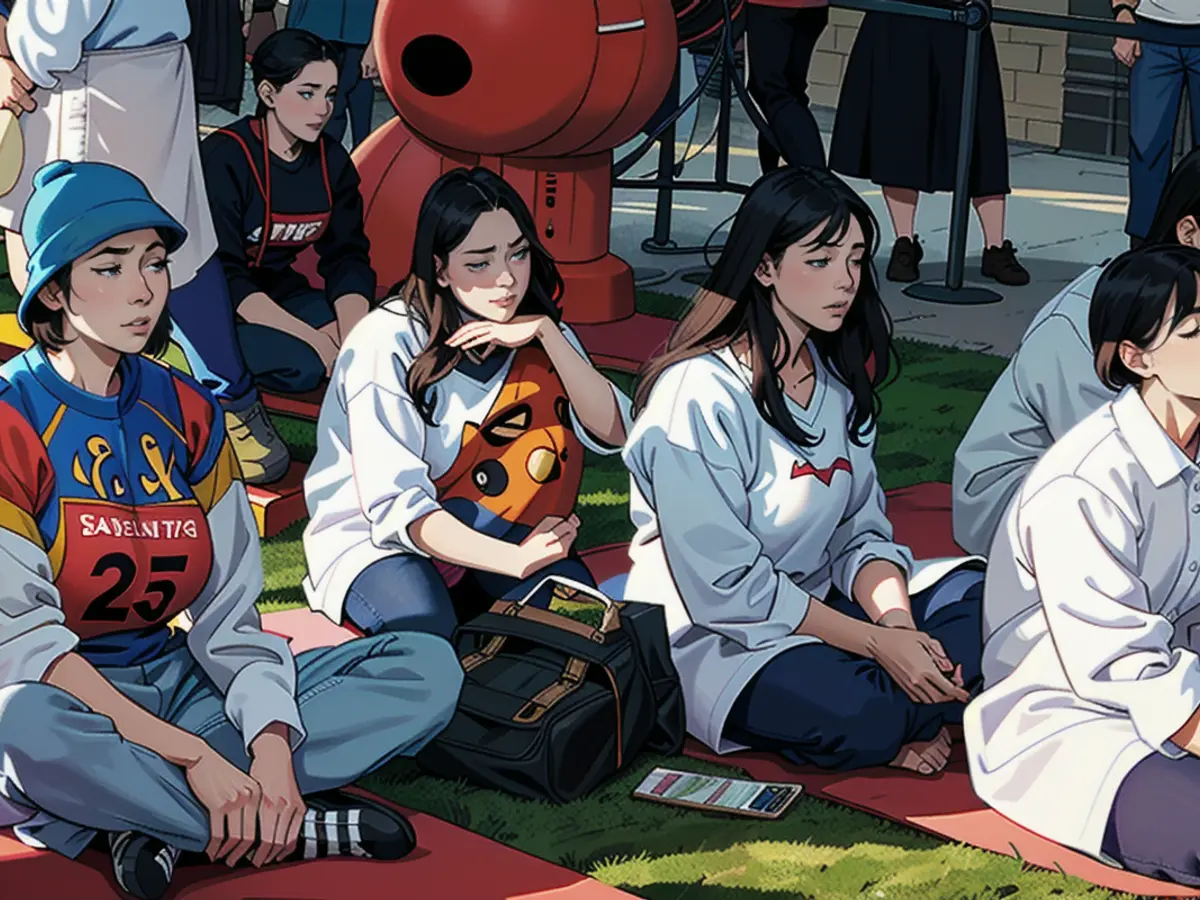Contestants in South Korea showcase their skills at idle activities.
Every year, a Space-out competition takes place, where contestants strive to remain still and uninterrupted for 90 minutes without falling asleep or using their phones. Heart rate monitors help track each participant's stability while spectators vote for their top 10 favorites. The one with the most stable heart rate wins.
One of the competitors was speed skater Kwak Yoon-gy, a double Olympic silver medalist who finished third in the competition. He confessed to being perpetually on the go, training for 30 years and attempting the Olympics five times without resting. He felt this was the break he needed, and hence participated.
Out of the 4,000 applicants, 117 were chosen to compete, ranging from a 2nd grader to individuals in their 60s. Many saw this event as an opportunity to escape from burnout and unwind from the stress caused by work pressures in a country where academic tension and a drive to succeed is prevalent.
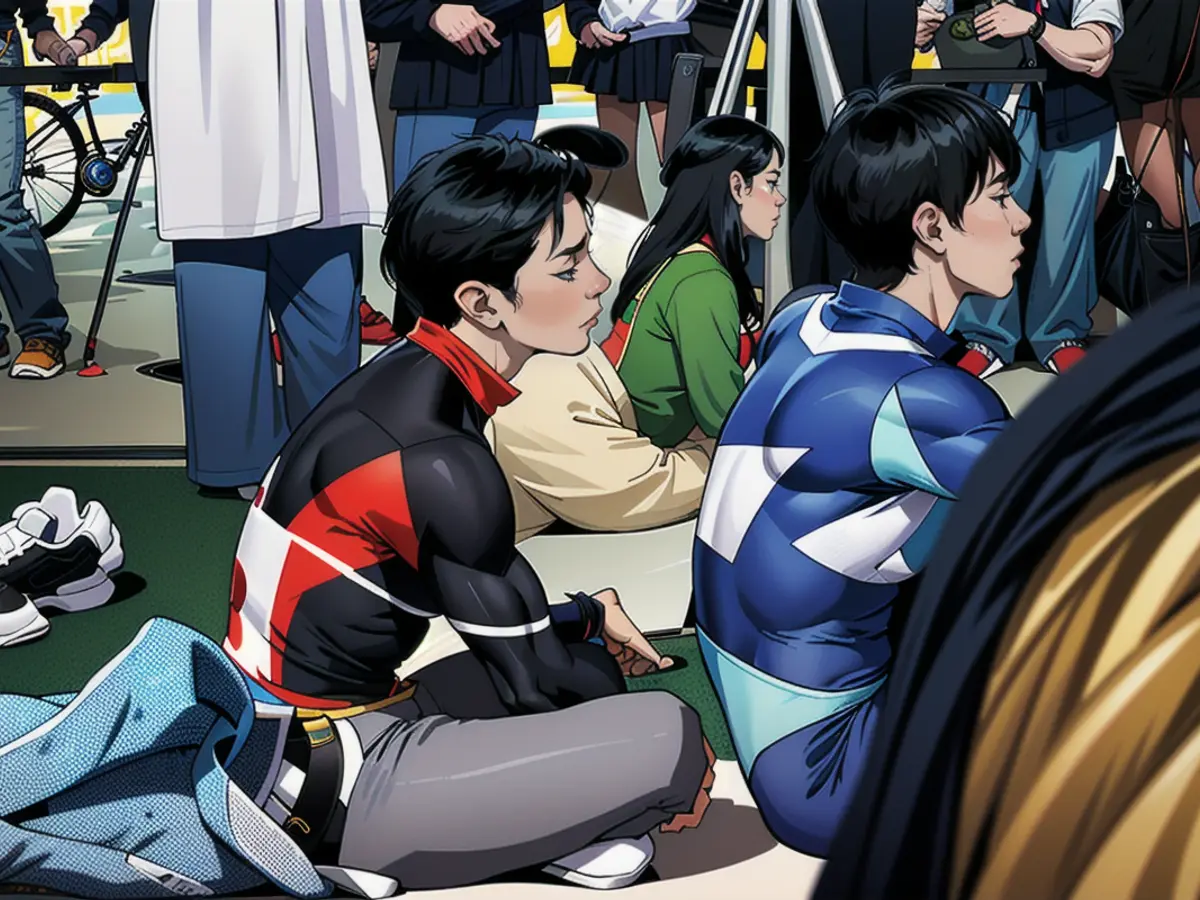
Applicant and YouTuber Kim Seok-hwan mentioned his relief from daily stress as a significant factor in his decision to compete: "I'm typically burdened with worries and stress, so I thought it would be nice to decompress during the competition."
The Space-out competition was founded ten years ago by a visual artist, Woopsyang, who deliberately used a pseudonym. She recognized her burnout and realized her anxieties stemmed from an assessment of how her life compared to others'.
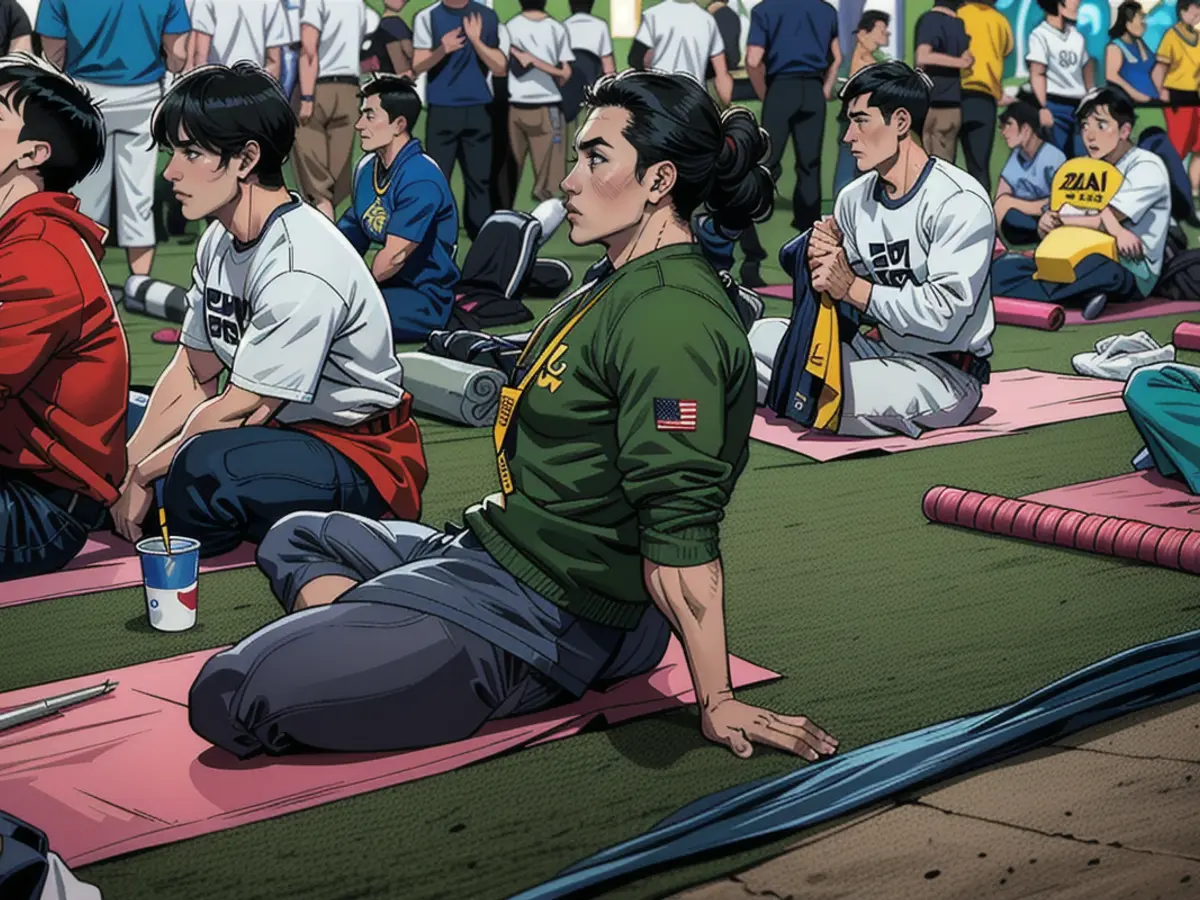
"My anxiety in doing nothing originated from comparing myself to others who were always busy," Woopsyang said, adding that these individuals could be equally in need of some downtime. She created the competition with the intention of pausing all together, allowing everyone to experience that moment of stillness.
Competitive idling seeks to subvert the societal perception of wasting time in our current fast-paced environment, turning the act of doing nothing into a meaningful activity.

"The contest tells you that spacing out is no longer a waste of time but a time you truly need," Woopsyang elaborated. "This is also performance art; although the contestants are static, the audience is dynamic."
Originated in Seoul in 2014, this competition has been replicated in international cities like Beijing, Rotterdam, Taipei, Hong Kong, and Tokyo inspiring people to unwind and appreciate the value of downtime. This year's Seoul event was won by Kwon So-a, a freelance announcer who has multiple jobs. Kwon recognized Korea's competitive nature and encouraged others to find their personal pace.
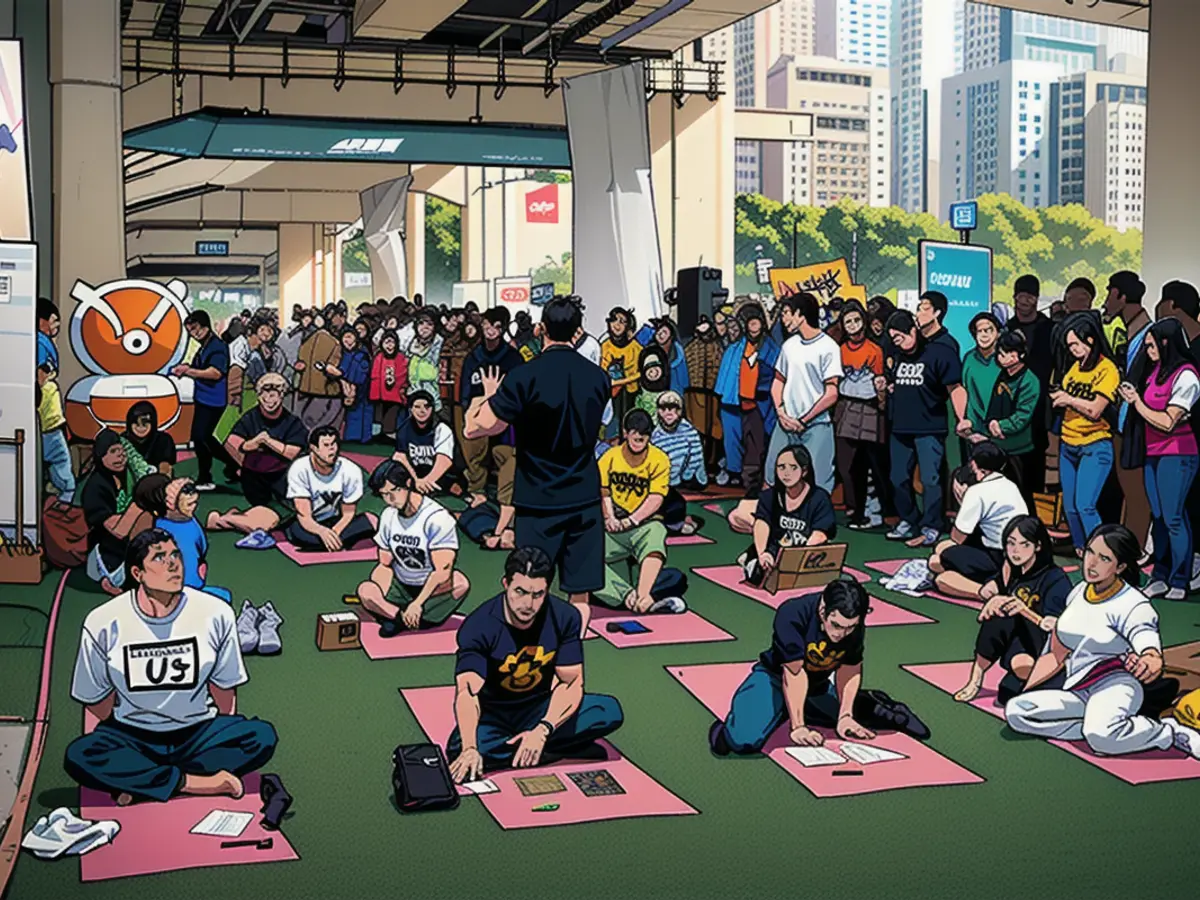
"Here in Korea, it's a highly competitive environment, and many people think that if they don't do anything, they're lagging," Kwon, 35, commented. "Sometimes, it's important to slow down."
Choosing not to do anything is beneficial for both mental and physical health by allowing your body and mind to relax. Hence, people should embrace Space-out competitions.
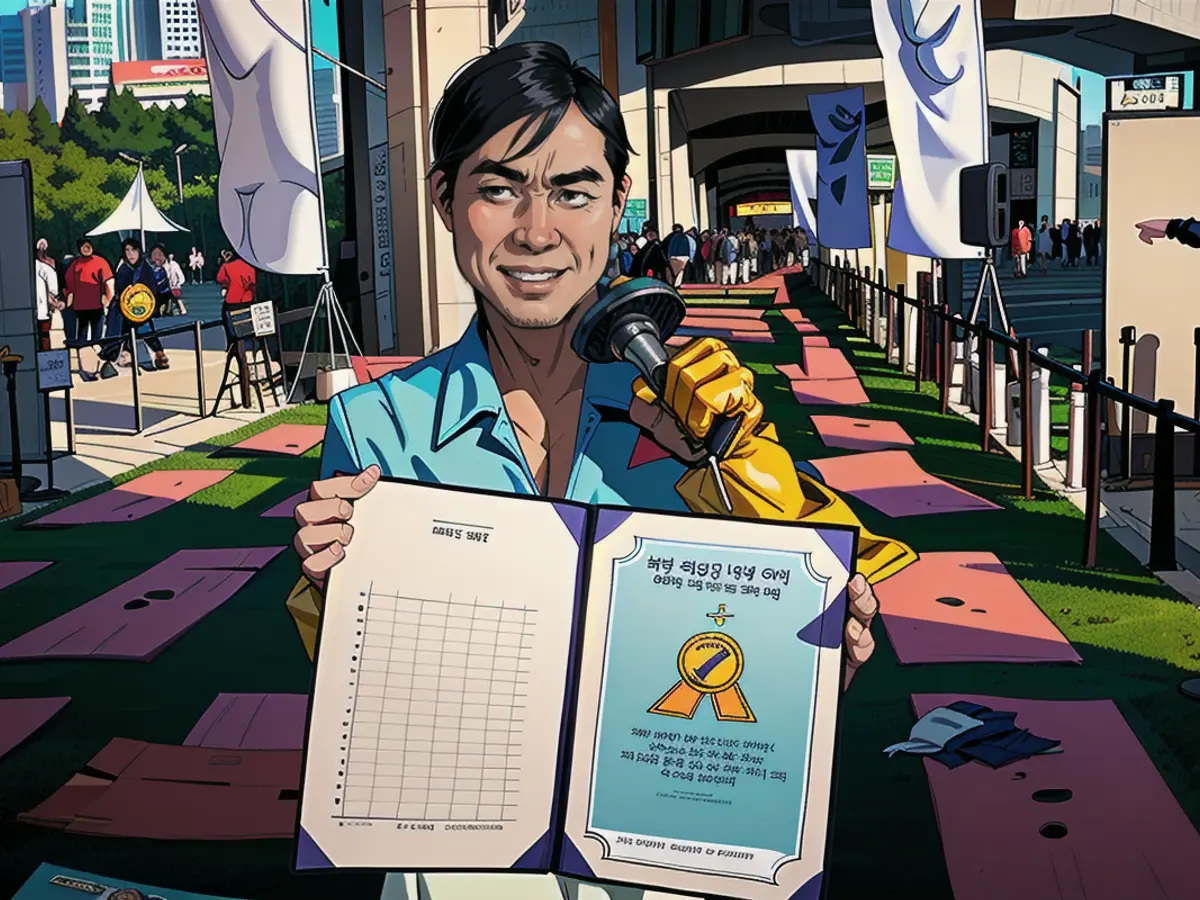
The event spans Seoul and holds competitions abroad, reinforcing the message that time spent quietly reflecting on life's priorities holds immense value in our hectic world.
Kim Hwa-jin and CNN's Charlie Miller also contributed to this article.
Read also:
- This will change in December
- Dikes withstand water masses so far - Scholz holds out the prospect of help
- Fireworks and parties ring in 2024 - turn of the year overshadowed by conflicts
- Attacks on ships in the Red Sea: shipping companies avoid important trade route
Despite the competition's origins in South Korea, it has also gained popularity in various Asian cities like Beijing, Taipei, and Hong Kong. The winner of this year's event in Seoul, Kwon So-a, encouraged others to realize the importance of slowing down in a highly competitive Asian society.
In the spirit of appreciating downtime, many people in Asia now participate in Space-out competitions, demonstrating that the world is recognizing the value of taking a break and unwinding.
Source: edition.cnn.com
